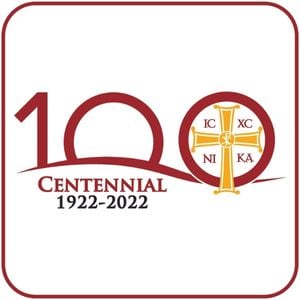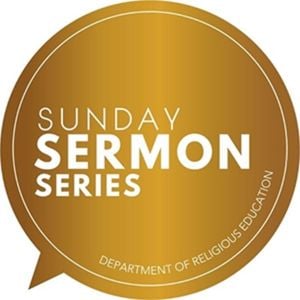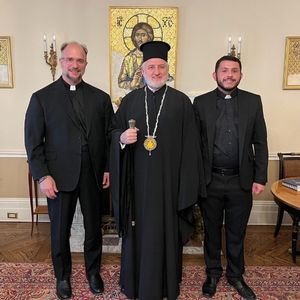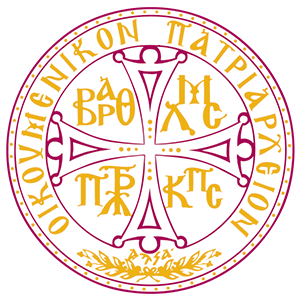The Lord has given us a sign 'as deep as Sheol and as high as heaven', such as we should not have dared to hope for. How could we have expected to see a Virgin with Child, and to see in this Child a 'God with us' (Isaiah 7: 11 & 14) Who would descend into the depths of the earth to seek for the lost sheep, meaning the creature He had fashioned, and then ascend again to present to His Father humanity thus regained?
Irenaeus of Lyons
Against Heresies, III, 19.3 (SC 211, p. 380), 130-208
His love for me brought low His greatness.
He made Himself like me so that I might receive Him.
He made Himself like me so that I might be clothed in Him.
I had no fear when I saw Him,
for He is mercy for me.
He took my nature so that I might understand Him,
my face, so that I should not turn away from Him.
42 hymns discovered in 1905 in a Syriac Manuscript.
Odes of Solomon 7 (The Odes and Psalms of Solomon R. Harris adn A. Mingana II, pp. 240-1). Written in Greek for the Christian communities of Syria., Early 2nd Century
How could the human race go to God if God had not come to us? How should we free ourselves from our birth into death if we had not been born again according to faith by a new birth generously given by God, thanks to that which came about from the Virgin's womb?
Irenaeus of Lyons, Against Heresies, IV, 33,4
Sources Chretiennes, Cerf, Paris found in The Roots of Christian Mysticism by Olivier Clement, p. 37., 130-208
Yet for all that, God, for the salvation of those who are in error, endured to be served by these things whereby those without were used to serve devils (astrology); only He slightly altered them; that He might draw them off by degrees from their customs, and lead them towards the higher wisdom.
St. John Chrysostom
Homily VI on Matthew II, 1,4., 4th Century
It requires of us to remember and hold in sacred honor the fact that we are born of God; and if we have sullied and trampled upon this birthright with our sins, we must restore it by washing it with tears of repentance; we must restore and renew within us the image of God which has fallen and the union with God and blessedness, truth and holiness which has been destroyed. 'Now God became man, that He may make Adam a god.' (Stichera for lauds of Annunciation.)
St. John of Kronstadt
My Life in Christ, transl. by E. E. Goulaeff, Holy Trinity Monastery, Jordanville, NY 1977, 19th Century
And so, my brothers, the feast of the Nativity of Christ reminds us that we are born of God, that we are sons of God (I John 3:1), that we have been saved from sin (Matt. 1:21) and that we must live for God and not sin; not for flesh and blood, not for the world which lies in evil (I John 5:19)
St. John of Kronstadt
My Life in Christ, transl. by E. E. Goulaeff, Holy Trinity Monastery, Jordanville, NY 1977, 19th Century
This is the reason why the Word of God was made flesh, and the Son of God became Son of Man: so that we might enter into communion with the Word of God, and by receiving adoption might become Sons of God. Indeed we should not be able to share in immortality without a close union with the Immortal. How could we have united ourselves with immortality if Immortality had not become what we are, in such a way that we should not be absorbed by it, and thus we should be adopted as Sons of God?
Irenaeus of Lyons, Against Heresies, III. 19,1
Sources Chretiennes, Cerf, Paris, as found in The Roots of Christian Mysticism by Olivier Clement, p. 38, 130-208
That God should have clothed Himself with our nature is a fact that should not seem strange or extravagant to minds that do not form too paltry an idea of reality. Who, looking at the universe, would be so feeble-minded as not to believe that God is all in all; that He clothes Himself with the universe, and at the same time contains it and dwells in it? What exists depends on Him Who exists, and nothing can exist except in the bosom of Him Who is.
If then all is in Him and He is in all, . . .Indeed, if the presence of God in us does not take the same form now as it did then, we can at least agree in recognizing that He is in us today no less tha He was then. Today, He is involved with us in as much as He maintains creation in existence. Then He mingled Himself with our being to deify it by contact with Him, after He had snatched it from death. . . For His resurrection becomes for mortals the promise of their return to immortal life.
St. Gregory of Nyssa, Catechetical Orations, 25 (Patrologia Graeca, Migne.)
Found in The Roots of Christian Mysticism by Olivier Clement, New City Press, NY, pp. 37-38, 330-395
And even if they knew Him to be a king, for what intent did they come? ... What had astrology to do with Him? ... What reason induced them to worship one who was king so far off ... not yet grown to manhood?
St. John Chrysostom
Homily VI on Matthew II, 1,4., 4th Century
Why do they set forth on so long a journey and offer gifts and this when dangers were sure to beset their whole proceedings? ... God called them by the things that are familiar ... and He shows a large and extraordinary star, so as to astonish them...
St. John Chrysostom
Homily VI on Matthew II, 1,4., 4th Century
What do the wise men learn from the star? ... That He was King of the Jews? And yet He was not king of this kingdom, even as He also said to Pilate, 'My kingdom is not of this world' ...
St. John Chrysostom
Homily VI on Matthew II, 1,4., 4th Century
I too will proclaim the greatness of this day: the Immaterial become incarnate, the Word is made flesh, the invisible makes itself seen, the intangible can be touched, the timeless has a beginning, the Son of God becomes the Son of Man, Jesus Christ, always the same, yesterday, today and forever. . . This is the solemnity we are celebrating today: the arrival of God among us, so that we might go to God, or more precisely, return to Him. . . Revere the nativity which releases you from the chains of evil. Honor this tiny Bethlehem which restores Paradise to you. Venerate this crib; because of it you who were deprived of meaning (logos) are fed by the divine Meaning, the divine Logos Himself.
St. Gregory the Theologian
Oration 38, For Christmas (Patrologia Graeca, 36, 664-5) found in The Roots of Christian Mysticism by Olivier Clement, New City Press, NY, p. 41, 330-390




 Tώρα που είστε όλοι στα σπίτια σας και ετοιμάζεστε να εορτάσετε τα Χριστούγεννα με τις οικογένειες και τους φίλους σας, θα ήθελα να σας ζητήσω να αφιερώσετε λίγο από τον χρόνο σας και να στρέψετε τη σκέψη σας προς όλους εκείνους, των οποίων οι ζωές καταστράφηκαν από τη βία και τον πόλεμο.
Tώρα που είστε όλοι στα σπίτια σας και ετοιμάζεστε να εορτάσετε τα Χριστούγεννα με τις οικογένειες και τους φίλους σας, θα ήθελα να σας ζητήσω να αφιερώσετε λίγο από τον χρόνο σας και να στρέψετε τη σκέψη σας προς όλους εκείνους, των οποίων οι ζωές καταστράφηκαν από τη βία και τον πόλεμο.
 This week, find insights about the upcoming Gospel reading, where we read about Jesus’ Incarnation and Birth.
This week, find insights about the upcoming Gospel reading, where we read about Jesus’ Incarnation and Birth.
 His Eminence Archbishop Elpidophoros of America welcomed Rev. Deacon Petros Gomez to the Archdiocese, who will serve as Deacon to the Archbishop succeeding the V. Rev Archimandrite Michael Giavris, effective immediately. Also present at the meeting was Chancellor of the Archdiocesan District Protopresbyter of the Ecumenical Throne Fr. Elias Villis.
His Eminence Archbishop Elpidophoros of America welcomed Rev. Deacon Petros Gomez to the Archdiocese, who will serve as Deacon to the Archbishop succeeding the V. Rev Archimandrite Michael Giavris, effective immediately. Also present at the meeting was Chancellor of the Archdiocesan District Protopresbyter of the Ecumenical Throne Fr. Elias Villis.
 His Eminence Archbishop Elpidophoros of America today welcomed Rev. Protopresbyter Milan Sturgis to the Archdiocese Headquarters.
His Eminence Archbishop Elpidophoros of America today welcomed Rev. Protopresbyter Milan Sturgis to the Archdiocese Headquarters.
 Begin the 2023 new year with the cherished vasilopita tradition with a beautiful gold-plated coin from Orthodox Marketplace. Vasilopita is the traditional Greek cake or pita served for New Year to celebrate the life of Saint Basil the Great.
Begin the 2023 new year with the cherished vasilopita tradition with a beautiful gold-plated coin from Orthodox Marketplace. Vasilopita is the traditional Greek cake or pita served for New Year to celebrate the life of Saint Basil the Great.
 The 11th Academic Consultation between Judaism and Orthodox Christianity took place December 4-6, 2022, in Vienna, Austria. The theme was “Jewish-Orthodox Christian Dialogue: Navigating Our Relations to the World and to Each Other.” The Consultation was co-sponsored by the Ecumenical Patriarchate and the International Jewish Committee for Interreligious Consultations (IJCIC).
The 11th Academic Consultation between Judaism and Orthodox Christianity took place December 4-6, 2022, in Vienna, Austria. The theme was “Jewish-Orthodox Christian Dialogue: Navigating Our Relations to the World and to Each Other.” The Consultation was co-sponsored by the Ecumenical Patriarchate and the International Jewish Committee for Interreligious Consultations (IJCIC).